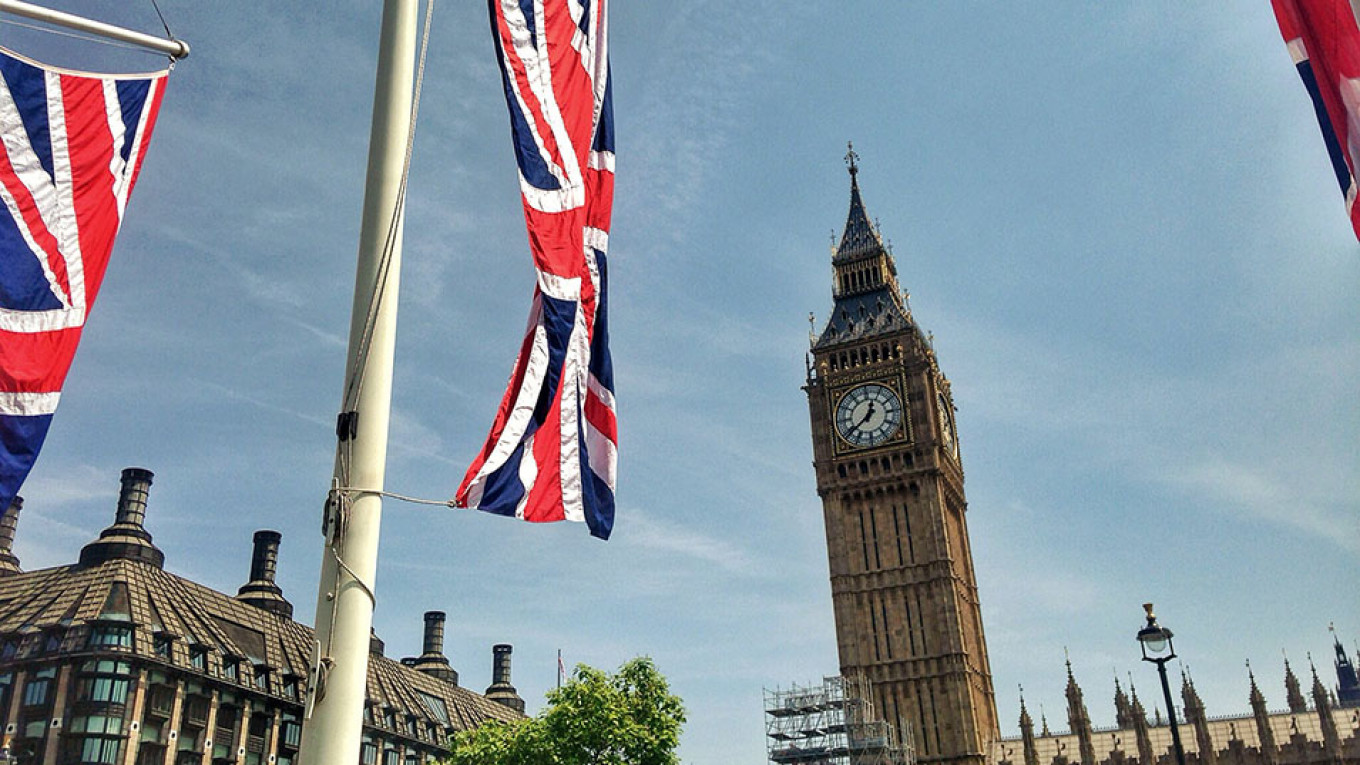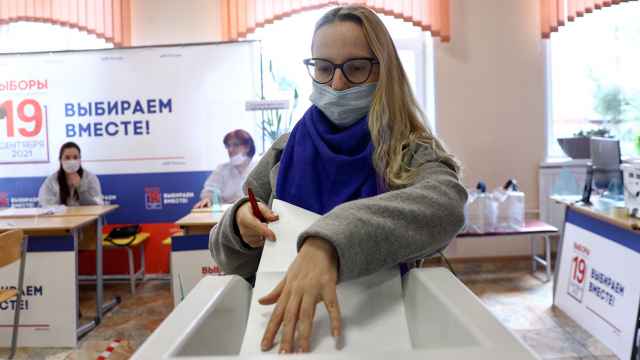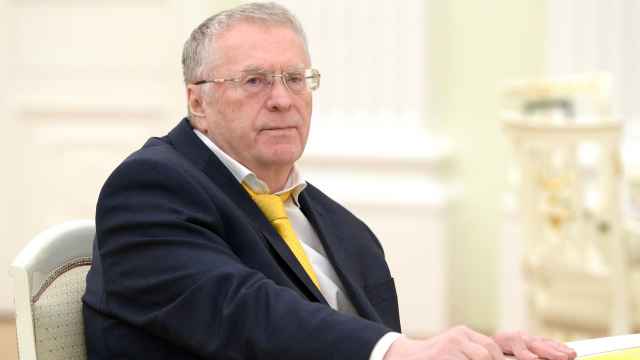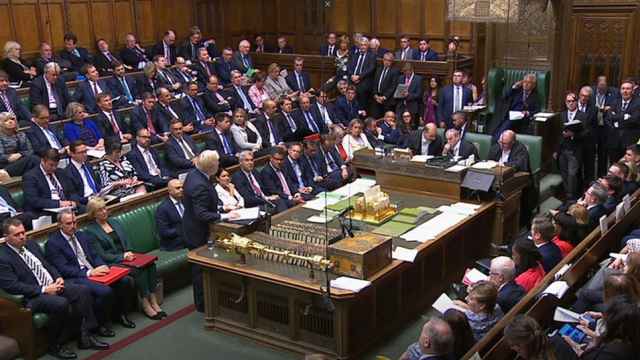The British government was accused by opponents of sitting on a parliamentary report examining alleged Russian meddling in British politics because it might contain embarrassing revelations about Prime Minister Boris Johnson and his party.
The report by parliament's Intelligence and Security Committee (ISC) has been cleared by the security services but it has not yet been given approval for publication by Johnson's Downing Street office, meaning it cannot be released before a Dec. 12 election.
Britain has accused Russia of meddling or trying to interfere in western elections, accusations denied by Moscow. The ISC was examining allegations of Russian activity aimed at the United Kingdom, including in the 2016 referendum on EU membership, when Johnson was a leading campaigner to leave.
Emily Thornberry, the foreign affairs spokeswoman for the opposition Labour Party, said the decision not to publish the parliamentary committee's report was for "utterly unjustifiable, unprecedented and clearly politically motivated reasons."
"What is Downing Street so worried about? I fear it is because they realize this report will lead to other questions to about the links between Russia and Brexit," she told parliament.
She said questions might be raised about Johnson's relationship to a suspected Russian spy who described the prime minister as a "good friend."
The report might also raise questions about connections of Johnson's senior aide Dominic Cummings, who worked in Russia in the 1990s, and about money from Russian sources to Johnson's Conservative Party, she said.
Junior foreign office minister Christopher Pincher accused Thornberry and others of peddling reprehensible smears and conspiracy theories for party political reasons ahead of the election.
He said the reason the report had not been published was because Johnson had a responsibility to study it carefully.
"It is not unusual for a review of ISC reports to take some time," Pincher said. "The turnaround time for this report is not unusual, the response time to the committee is not unusual."
The ISC's chairman, Dominic Grieve, a lawmaker pushed out of the parliamentary bloc of Johnson's Conservatives over Brexit, said that the report might not now be published until six months after parliament had been reformed following the election.
"My secretariat tell me that it is unprecedented that we should have had no response at all explaining why any further delay is required in this case," he told parliament.
The report, he said, had been scrutinized by Britain's intelligence agencies who had cleared it for publication last month. It was passed to Johnson's office on Oct. 17.
"For what purpose is the prime minister still considering it? It certainly can't be the risk to national security because the agencies themselves said there is none," Grieve said.
A Message from The Moscow Times:
Dear readers,
We are facing unprecedented challenges. Russia's Prosecutor General's Office has designated The Moscow Times as an "undesirable" organization, criminalizing our work and putting our staff at risk of prosecution. This follows our earlier unjust labeling as a "foreign agent."
These actions are direct attempts to silence independent journalism in Russia. The authorities claim our work "discredits the decisions of the Russian leadership." We see things differently: we strive to provide accurate, unbiased reporting on Russia.
We, the journalists of The Moscow Times, refuse to be silenced. But to continue our work, we need your help.
Your support, no matter how small, makes a world of difference. If you can, please support us monthly starting from just $2. It's quick to set up, and every contribution makes a significant impact.
By supporting The Moscow Times, you're defending open, independent journalism in the face of repression. Thank you for standing with us.
Remind me later.






